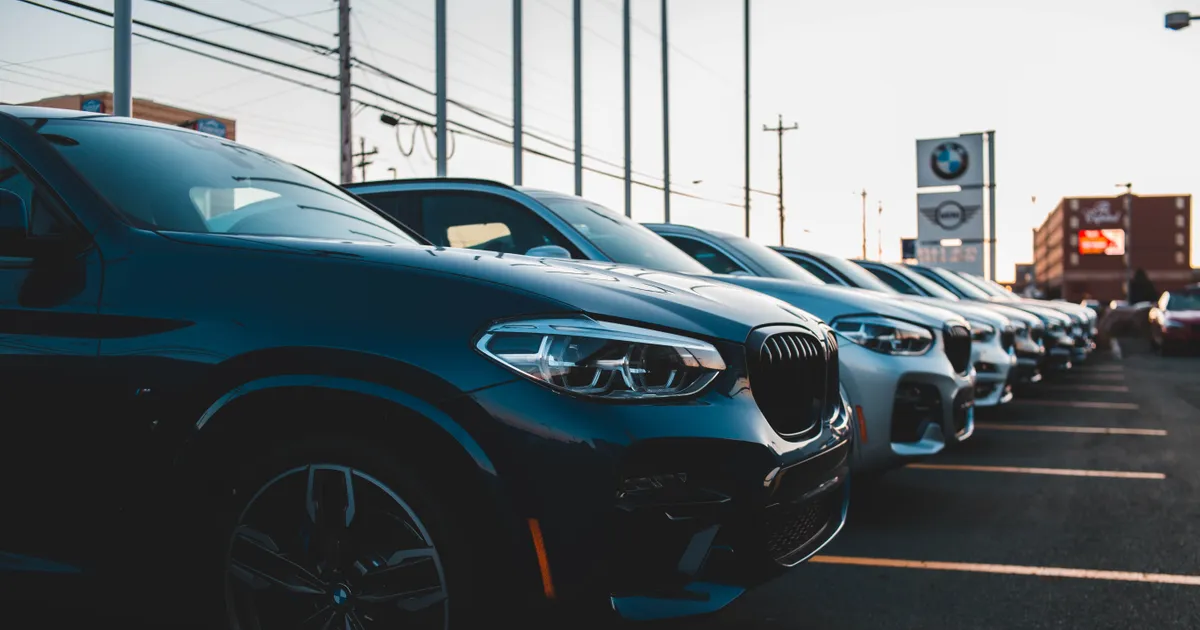Feel confident purchasing a used car from a registered dealership, and learn about your rights as a consumer and the regulations that dealerships must adhere to.
Trust is a key element when buying a car, and when you purchase your vehicle — new or used — from a registered dealership, it’s important to feel confident about what you’re buying and who you’re buying it from. We’re exploring what you can expect when you buy a used vehicle from a registered dealership, as well as looking into the used car purchase return law.
What Is a Registered Dealership?
In the U.S., direct sales of vehicles from the manufacturer to individuals are almost exclusively prohibited. New cars must be sold through a car dealership. Car dealers must register as a franchise and purchase franchise rights from different manufacturers.
Once the interested dealership has purchased its franchising rights, the company also needs to register the business with its home state. In the U.S., regulation of car dealerships operates almost entirely at the state level. In order to be a registered dealer, the potential dealership must obtain a license from its state government. Different states have different regulations, but there are some commonalities:
- Financing auto sales requires a separate license
- Dealerships must provide records of all sales to the respective state tax department, typically within 20-45 days
- Most states require registered dealerships to offer a warranty or short-term guarantee for any used vehicle sold from their lots
- All dealerships are required to post the car’s mileage, year, make, model and suggested retail price on the window sticker
- Dealerships must make the buyer aware of any recalls on the vehicle or its parts
- Dealerships provide you with a full history of the vehicle
 Erik Mclean/Unsplash
Erik Mclean/UnsplashBuying a Used Car from a Registered Dealership
When you buy a used car from a registered dealership, you do have a few guarantees to help put your mind at ease. Car dealers are in the business of selling cars and they’ll only offer used cars that are worthy of being sold. This means that, for the most part, there’s little chance you’ll get a “lemon” from your local used car dealer.
Beyond that, there are a few other things that make buying a used car from a registered dealer better than buying from a private seller.
Standards of Quality
There are certain rules and regulations that dealerships have to follow with regard to the quality and safety of vehicles that they offer for sale. Car dealers are required by law to only sell vehicles that meet certain quality standards, such as being able to pass state inspections and those that have fewer than a certain number of miles on their odometers. Privately sold vehicles or those from an unregistered dealership don’t have to adhere to those standards.
Warranty Guarantees
Even though some cars sold at registered dealers may not still be under factory warranty for some parts, registered dealerships typically offer certain limited warranties as a sales incentive for used cars sold from their lots.
While private sellers will generally provide a history of the car and the maintenance records, dealerships are held to higher standards and must provide a full history of the cars they sell.
 Omotayo Tajudeen/Unsplash
Omotayo Tajudeen/UnsplashLess Paperwork
A registered dealer will complete all needed paperwork, including trading in your old car. They’ll also help complete auto financing and the transfer of ownership paperwork, making it less work for the buyer. This includes registering the car with the DMV and even securing permanent license plates.
Buyers Guide
Every used car at a registered dealership must, according to law outlined by the U.S. Federal Trade Commission (FTC), post the Buyers Guide in the car.
This law covers lease returns, whether short- or long-term, and vehicles that were traded in at the dealership or purchased by the dealership at auction for resale.
The Buyers Guide:
- Advises buyers about the major electrical and mechanical systems of the car and potential problems of each
- Indicates whether the particular vehicle is “as is” or has a warranty
- Includes how much the dealer will pay for repair costs
- Contains smart actions for buyers, such as getting any promises or guarantees in writing, having the car inspected by an independent mechanic and obtaining a vehicle history report
 Erik Mclean/Unsplash
Erik Mclean/UnsplashWhat Is a Used Car Purchase Return Law?
Well, there isn’t actually a law that requires dealerships, even registered dealerships, to allow purchasers to return their used vehicle. According to the FTC:
“Dealers are not required by federal law to give used car buyers a three-day right to cancel. In some states, dealers are required to give a right to cancel. In other states, the right to return the car in a few days for a refund exists only if the dealer chooses to offer this privilege.”
While many reputable dealerships will offer customers a “cooling off” period, these aren’t required by law. However, this courtesy may actually signify a dealership that is honest with customers and transparent about its business dealings. That being said, before you sign a purchase contract, ask about the dealership’s return policy, make sure that you fully understand it and get it in writing.
Final Thoughts
As with any big-ticket purchase, do your homework before buying a car — both for the vehicle itself and the dealers in your area. Check the dealership’s certification online, and don’t be afraid to ask questions about the return policy if something happens to the car soon after purchase.






